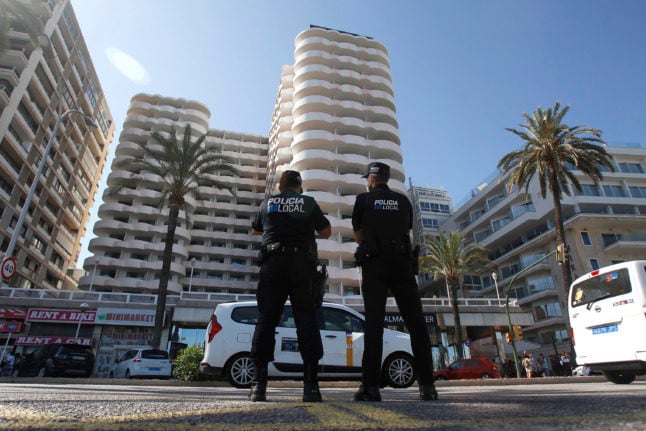The decision to reclassify Spain as a high-incidence area from Tuesday onwards has been sharply criticised by the German travel industry, who fear the decision will spell an early end to the peak summer season.
“Upgrading Spain in the middle of the school break means that, for numerous travellers, and above all families with children, their holiday plans are null and void,” said Norbert Fiebig, president of the German Travel Association.
According to the trade group, around 400,000 German tourists are likely to be in Spain right now, with tens of thousands holidaying in the so-called ’17th German state’ of Mallorca.
When they return, everyone – including small children – faces up to 10 days in quarantine, unless they can prove they are vaccinated against or have recovered from Covid. With a negative test, they can end their quarantine after five days.
While many vaccinated adults may still opt to travel, younger travellers who aren’t fully jabbed yet – and families with children for whom no Covid vaccines are approved – could well decide it isn’t worth the hassle.
READ ALSO: Can families with unvaccinated children holiday in Germany this summer?
“It’s good that we cancelled,” said Nadine, a user on a Mallorcan travel forum. “It’s not worth it if you have to quarantine with children afterwards.”
Others, meanwhile, said they would wait to see if more travel restrictions were imposed before reaching a decision.
Though the announcement on Spain was only made on Friday, hotel companies were already seeing a 30 percent drop-off in bookings even before the changes were confirmed – potentially due to ongoing uncertainty.
Infections have been skyrocketing in Spain since they sunk down to single-digits in June. Nationwide, the 7-day incidence of Covid infections per 100,000 residents stands at 380, while in Mallorca, this figure is now well over 400.
READ ALSO: TRAVEL: Germany puts Spain and Netherlands on Covid ‘high incidence’ list
According to Germany’s Robert Koch Institute, regions that exceed the 200 mark are closely observed to see if they should be classified as high-incidence. After being classed as risk areas earlier in July, both Spain and the Netherlands both had their risk status upgraded last week, with the new rules coming into force on Tuesday.
Mallorcan quarantine hotels ‘overwhelmed’
Beyond the travel restrictions on the German end, new restrictions in Mallorca are already putting a dampener on the island’s famously boozy nightlife.
At the weekend, the popular holiday destination introduced a curfew between the hours of 1am and 6am to attempt to quell what the authorities see as an excessive and irresponsible party culture.
Now, restaurants and bars must shut at this hour, and police have started to patrol the most popular beaches with drones and helicopters.
Hundreds of holidaymakers have already been infected while travelling on the island, and there are reports that quarantine hotels are at capacity, while local officials are overwhelmed by the number of cases.
The number of positive test results on return to Germany is also on the rise. The Robert Koch Institute estimates that around 10 percent of Germany’s new infections can be attributed to holidaymakers returning from abroad.



 Please whitelist us to continue reading.
Please whitelist us to continue reading.
I agree. We cancel our trip to Amsterdam next week because of the same reason.